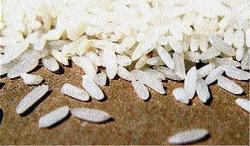
Last month, I prepared and cooked hors d'oeuvres for a large event and one of the items on the menu was miniature devilled crab cakes. I needed 15 pounds of crab meat to make about 600, so I ordered it from a seafood supplier who came highly recommended.
Thirty-six hours before the big day, a few bags of frozen crab were delivered. As it began defrosting, I noticed a terrible smell, along with an incredible amount of water collecting in the bowl. In short, it was 'off'.
I returned the culprit and called another reputable place. The following morning I had déjà vu. Needless to say, tilapia cakes made it on the menu instead!
Rancid food
These two companies are not alone in their poor handling of perishables. On numerous occasions, I had bought feta or fresh milk at supermarkets and found they were rancid. Let me preface this by saying I always check 'best-before' dates. What has caused these items to go bad? The temperature of foods that require refrigeration should be kept at 8° Centigrade or below, otherwise bacteria will grow and multiply and could cause food poisoning.
To ensure safety, your fridge's thermometer ought to read between zero and 5° Centigrade. Likewise, your freezer's temperature should not rise above -18° Centigrade.
In all aforementioned cases, something has gone wrong with the monitoring and control of temperature. Christopher Ramson, of Chas E. Ramson Limited, says that Chas has a strict policy of checking temperatures twice daily and recording the data. It must be frustrating for him when some of the company's wholesale meat and fish, once sold, are not managed properly.
Take heed
Why is it so important to take heed of what I am saying? Anyone can get food poisoning from the most unsuspecting food item. Rice, for example, in its uncooked state, might contain bacillus cereus spores, which can survive and germinate into bacteria when cooked and left at room temperature. The bacteria will multiply and could produce toxins that cause vomiting and diarrhoea. You cannot eliminate these bacteria by reheating the rice.
If you would like to make or discuss a point, email: emma@sharpactionfood.com

